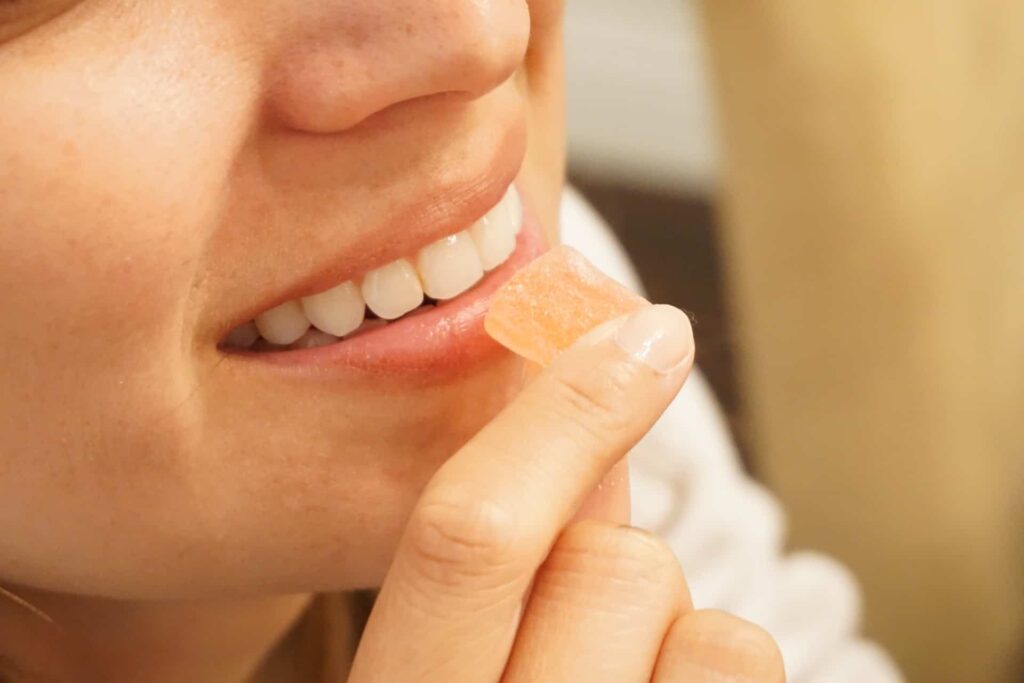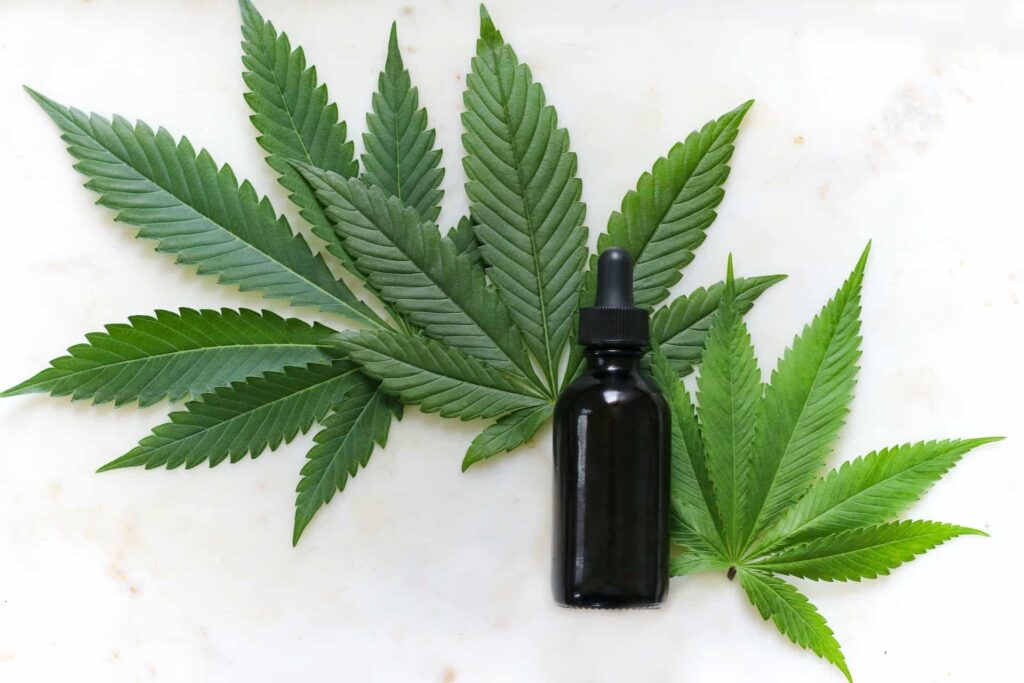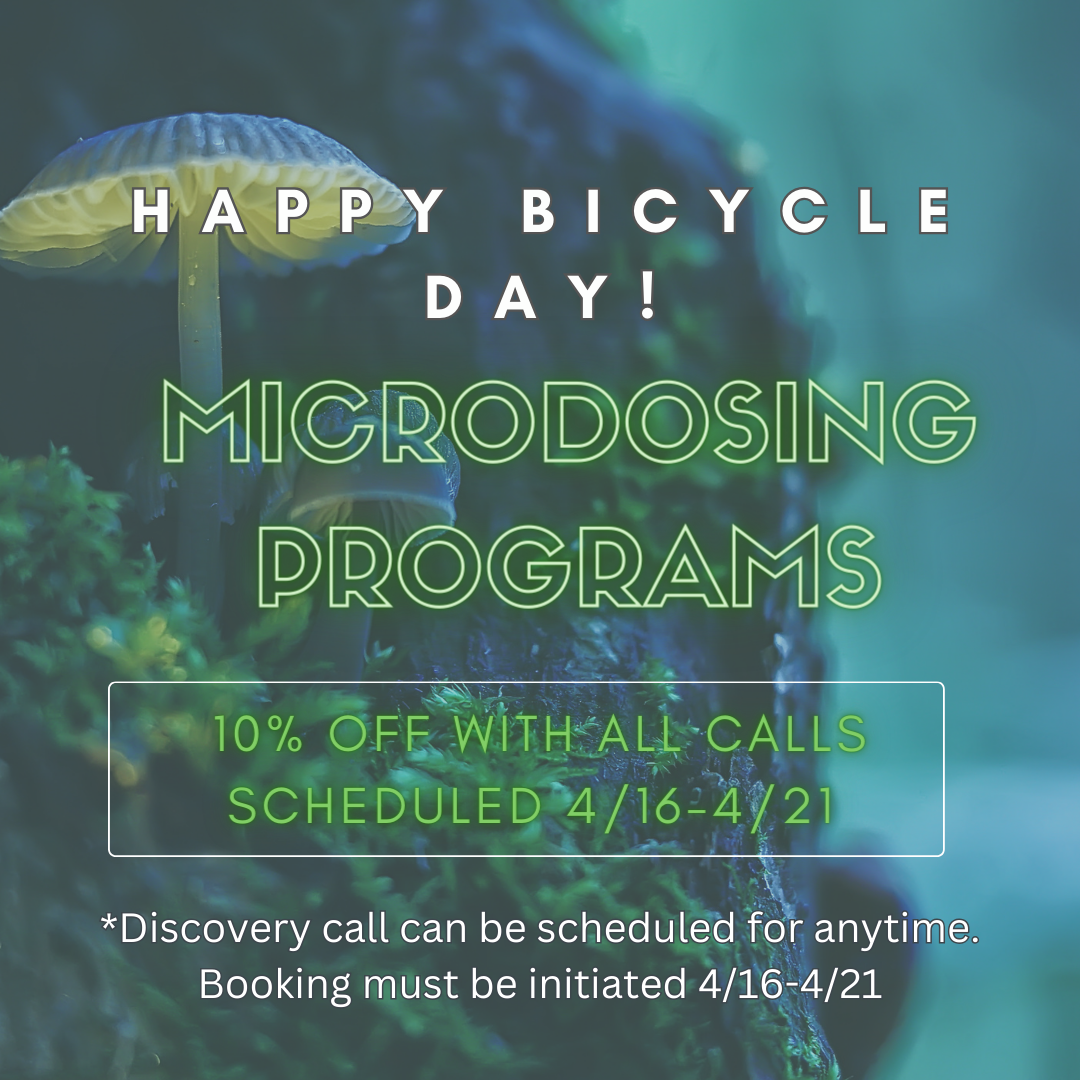When people think of THC, they often think that only one variety exists and believe that they fully understand what it is. However, there are four main varieties of THC out there, all of which are different from each other. Many are unaware of the differences and the effects produced by these differences.
One of the main types of THC to know is delta-8 THC. Keep reading to learn more about delta-8 THC and to see how it compares to other varieties of THC.
Related: Science of THC: How Marijuana Affects the Brain & Body
What Exactly is Delta-8 THC?
When people think of THC, the variety of THC they are usually thinking of is called delta-9 THC. In fact, delta-9 THC is so common and is used so often that many just refer to it as THC, even though other varieties exist. This is because delta-9 THC is the compound responsible for the euphoria produced by cannabis. Since most people immediately think of intoxication when they think of cannabis, they immediately think of delta-9 THC when thinking of THC.
Delta-8 THC is slightly different. Both produce many of the same general feelings and mental effects. This causes some to get them confused.
However, all of these feelings and mental effects are less intense in delta-8 THC. This makes it a more mild version of delta-9. The only difference between the structure of the two is the location of a double bond.
What are the Benefits of Delta-8 THC?
Many of the benefits of delta-8 THC are the same as or similar to the benefits of delta-9 THC. Both can potentially cultivate relaxation, create a feeling of euphoria, and help deal with pain. The difference is that the degree to which delta-8 THC produces these effects is less.
For some, this lesser degree of impact is a huge benefit all on its own. Many people enjoy some of the effects of delta-9 THC but do not like the intensity of those effects. Instead, they want a similar experience but in a more mild format. In these situations, delta-8 is a perfect choice.
Looking for a delta-9 product that you can trust? Our gummies are hemp-derived and non-synthetic. Take a look here!
Think of it like having a sweet tooth. Some people love sugar and want as much of it as possible in their desserts. Some enjoy sugar but want a little less when they enjoy a sweet treat.
The other big benefit of delta-8 THC is that it is not bound to the same legal restrictions that delta-9 THC is bound by. Delta-9 THC is heavily regulated and, in most cases, is illegal in any significant quantity. Meanwhile, delta-8 THC is legal in more places.

What are the Downsides of Delta-8 THC?
Delta-8 and delta-9 THC don’t just share benefits; they share downsides as well. Both have the potential to create a range of different side effects. These include red eyes, dry mouth, increased heart rate, lack of coordination, reduced reaction time, anxiety, and memory loss. These may sound familiar as they are similar to the potential downsides of marijuana use in general.
Unfortunately, delta-8 THC may have a few other potential downsides on top of these. However, these relate to the compound’s source.
This is because delta-8 THC is synthetic and is essentially created in a lab by taking CBD and chemically converting it to Delta-8. An untrustworthy lab may produce compounds that have other negative effects. Some may even include delta-10, which does not have as much research surrounding it. This is why it is important to choose trustworthy sources when seeking out any cannabis product.
Related: The Complete Guide to Delta 9 THC
Does Delta-8 THC Produce a High?
While delta-9 THC produces the high people traditionally associate with marijuana, delta-8 also produces a high or euphoric feeling. As already stated, this euphoria is very similar to the high produced by delta-9 THC in terms of the feelings that are felt. However, the overall high is less intense.
What is the Legal Status of Delta-8 THC?
Currently, the vast majority of legislation in the US that deals with THC only deals with products from plants that are high in Delta-9 THC. If the product is from a plant with less than 0.3% THC, then it is technically legal.
This means that delta-8 THC falls into somewhat of a legal loophole. Despite being similar to delta-9 THC, it isn’t typically regulated in the same way. Instead, it is largely unregulated and, thus, legal. Unfortunately, it is this same lack of regulation that has led to some health concerns regarding the creation of delta-8.
However, this isn’t necessarily true across the board. Some states specifically regulate delta-8 because it is so similar to delta-9. For example, Oregon has outlawed the sale of delta-8.
Delta-8 Alternatives
Those in areas impacted by delta-8 THC legislation or who are simply looking for something different may want to look into delta-8 alternatives. Chief among these alternatives is CBD.
CBD produces a range of beneficial effects, like pain relief. Because of this, you can commonly find products like CBD pain relief creams. Many people use products like these to deal with chronic pain, especially chronic pain caused by inflammation. Not all CBD is created equal. Find high quality and effective CBD here.
The other benefit of CBD is that it is available in many areas. CBD products do not have enough THC to be impacted by most legislation. This is why you will see CBD products on the shelves that range from oils and gels to products related to pet care.
Related: THC-V: Everything You Need to Know About “Diet Weed”
While CBD shares many benefits with THC, there are still differences. The biggest difference between CBD and THC options is that CBD does not produce a high. This is a big part of why it is more widely available.

Understanding Delta-8 THC
With a wide variety of THC-related products on the market, it is important to understand the details behind each product to ensure you are getting what you want. Delta-8 THC presents several specific positives and negatives that need to be considered before using it. If you decide to try it out for yourself, make sure to go with a trusted source.
CBD tinctures are another great alternative to delta-8! Check out our products that all meet the FLOW criteria!
Last Updated on September 1, 2023 by Megan Mbengue, BSN, RN, CHPN


